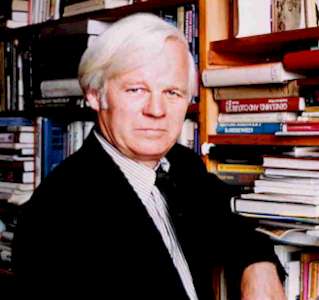 The Telegraph, a newspaper out of the UK, has put out an article detailing the findings of emeritus psychology professor Richard Lynn. Lynn teaches out of Ulster University and has recently suggested that people with better than average IQs are less likely to believe in God.
The Telegraph, a newspaper out of the UK, has put out an article detailing the findings of emeritus psychology professor Richard Lynn. Lynn teaches out of Ulster University and has recently suggested that people with better than average IQs are less likely to believe in God.Lynn's critics have labelled the findings "simplistic", and based on what I've read so far, I'd have to agree.
According to Lynn, the decline in religious affliation and belief in God dropped dramatically in the 20th century because people have become more intelligent. A quick glance at the basic evolution of the human being, however, suggests that we may not have been as smart as our neanderthalic ancestors. If that is true, then Lynn's findings are not only "simplistic", as his critics have charged, but inevitably wrong.
Neaderthals were highly religious (though not in an organised sense), even superstitious people, yet their overall cranial capacity suggests a larger brain, and therefore a possible better overall cerebral capability. Mind you, as the documentary Battle of the Brains indicates, the jury's still out on whether a bigger brain means more potential capacity. For some, smaller regions of the brain are more efficient than others who have larger regions, and visa versa.
So, while it is that neanderthals may have been smarter and people with better-than-average IQs may be less inclined to believe in God, there is no clear-cut link between belief in a set of propositions and the overall intellectual horsepower of a person's brain.
And let's not fool ourselves into thinking that the world's major educational institutions are anything shy of nonreligious to begin with. Hence people who flourish in academic settings are going to be much more highly influenced by the philosophical climate of the institutes they attend. In our youth, we usually call that kind of exemplification "peer pressure", but somehow, when we peer into the upper-eschelons of academia the notion of that same "peer pressure" is overlooked, and people start exculpating themselves with unfounded excuses such as 'people are just smarter now.' Nonsense! People are able to access much more information now and, consequently, they are better equipped to meet the demands of reality face-on.
In any case, being better informed and having more ready access to information doesn't make a person smarter, and really doesn't show a link into disbelief. The familiar logician's addage "correlation is not causation" is instructive here: while there may be an argument to suggest that readily available information can persuade people not to believe in God, that accessibility is not definitively the cause of a person's unbelief. And let's not forget that there are many sincere, highly intelligent religious folk who have access to the same information that most other people do -- and they keep believing.
No comments:
Post a Comment